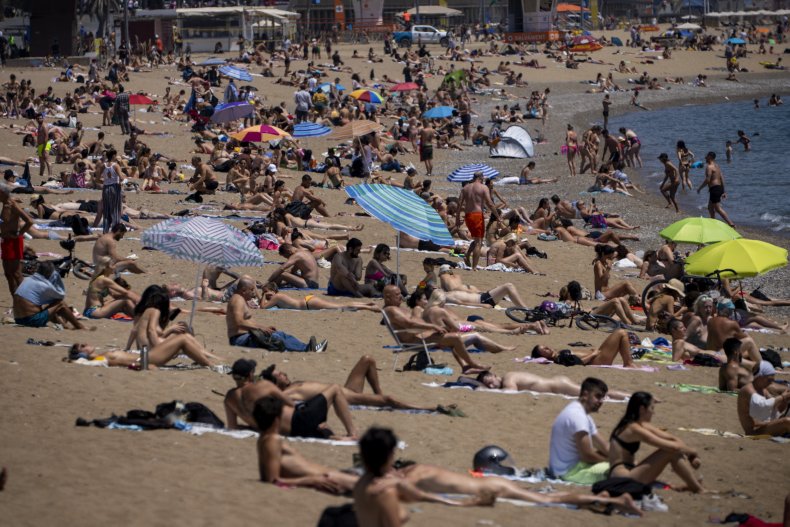European Union lawmakers adopted a new travel certificate that will allow people to avoid COVID-19 tests and quarantining when traveling around Europe.
The passes, which will be issued by individual countries, not from the centralized EU system, are aimed at saving travel and tourism industries across Europe.
Currently, each nation has its own COVID-19 safety rules and standards, which has made travel confusing.
“EU states are encouraged to refrain from imposing further restrictions, unless strictly necessary and proportionate,” Spanish Socialist lawmaker Juan Fernando Lopez Aguilar, who chaperoned the votes through parliament, told the Associated Press.
Patrick van Katwijk/BSR Agency/Getty Images
For more reporting from the Associated Press, see below:
Key travel destinations like Greece have led the drive to have the certificate, which will have both paper and digital forms, rapidly introduced.
Several EU countries have already begun using the system, including Bulgaria, Croatia, the Czech Republic, Denmark, Germany, Greece and Poland.
The new regulations governing the vaccine certificates were adopted in two votes at the European Parliament in Strasbourg, France. Rules for EU citizens were passed 546 to 93, with 51 abstentions. Those for people from outside the bloc passed 553 to 91, with 46 abstentions.
The vote must still be rubber-stamped by EU nations, but that’s likely a formality.
It means that beginning July 1 for 12 months, all EU countries must recognize the vaccine certificate. They will be issued free and certify that a person has either been fully vaccinated against the virus, has recently tested negative or has recovered from the disease.
The rules will not be heavily enforced for 6 weeks to allow countries to prepare.
People coming from outside the EU, the overwhelming majority of whom should be vaccinated to enter, will be able to get a certificate if they can convince authorities in the EU country they enter that they qualify for one.

Emilio Morenatti/AP Photo



















